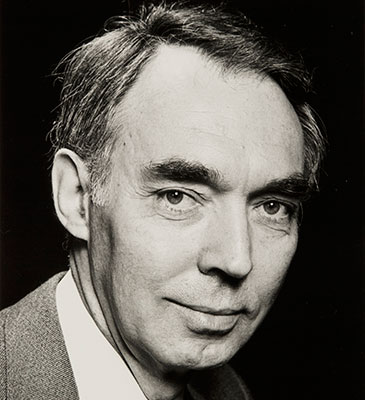Born in Sheffield on 14 June 1924, Norman was educated at the city’s grammar school before joining the Royal Naval Volunteer Reserve in 1943 at the age of 18. Returning to civilian life in 1946 with the rank of Lieutenant, he entered Sheffield University. Although his studies were interrupted by a long period of treatment for pulmonary turberculosis, contracted during his wartime service, he graduated in 1952 with first-class honours in English, Philosophy and Spanish. He then went on to Leeds, where he qualified in librarianship and later gained a higher degree from the University. It was in Leeds that he met his wife, Jean, also a librarian. They married in 1954.
Norman’s first professional post was in Sheffield University Library, from where he moved in 1957 to the Brotherton Library in Leeds as Assistant Librarian. In 1962 he became Librarian at the Loughborough College of Technology (as the University then was) but returned to the Brotherton as Deputy University Librarian only one year later. In 1966 he was appointed to the senior post at Bristol.
He immediately set about modernising and reinvigorating a library that was perceived not to be of the calibre expected of a British university of the first rank. Norman gradually brought together under one integrated administration all of the semi-autonomous departmental libraries that had developed across the campus. He secured the funding to dramatically improve both the collections of books and journals and their accommodation. In 1976 he oversaw the opening of the new headquarters building and Arts and Social Sciences Library in Tyndall Avenue – a building which won a design award from SCONUL, the professional body representing all of the university and national libraries in the UK. The new library introduced a new way of issuing books: Norman had chaired the South West University Libraries Systems Co-operation Project (later SWALCAP), which successfully brought automation to many British libraries. He significantly boosted the special collections of rare books and manuscripts, bringing in by negotiation and purchase much of the Isambard Kingdom Brunel archive which remains one of the jewels in the University’s crown, albeit now housed with other Brunel material alongside the SS Great Britain.
Outside the Library, Norman was very active and much respected in the wider professional world, culminating in his appointment in 1983 as President of the Library Association (now the Chartered Institute of Library and Information Professionals). He published a number of books, including The Library in the university: observations on a service (Deutsch, 1980), and A Very scientific gentleman: the major achievements of Henry Clifton Sorby (Pergamon, 1963). Norman and Jean were also committed supporters of Oxfam, and Norman served on the organisation’s council and executive committee and in its local shop.
In 1984, Norman was awarded the Order of the British Empire in recognition of his services to librarianship, and in 1989 – the year of his retirement – he was granted the degree of Doctor of Letters honoris causa by the University. The present Librarian, Dr Jessica Gardner, has confirmed that ‘his legacy to our University and professional sector is held in very high regard’.
After retirement, Norman continued to work for the Library Association and Oxfam and became a stalwart of the local branch of the University of the Third Age. He was a gentle man, benevolent and popular, proud of his library and its people. He had two great loves in his working life, academia and libraries, and he was fortunate and happy in being able to combine the two.
Norman is survived by Jean and by his children Kathy and William.
